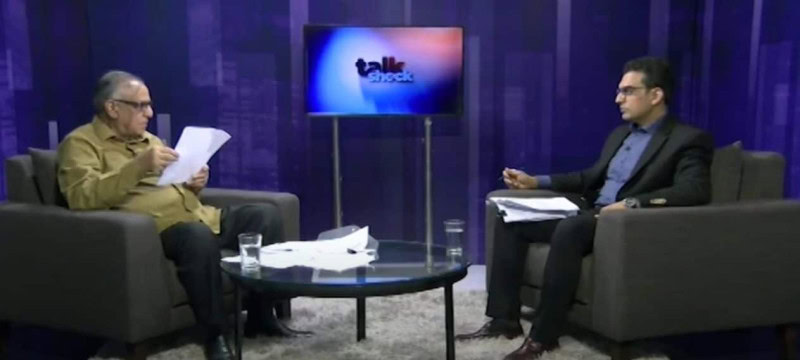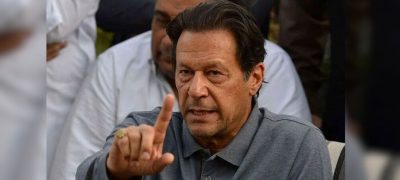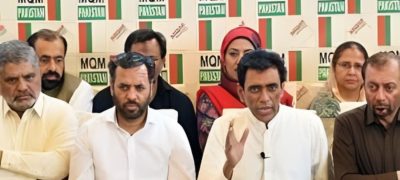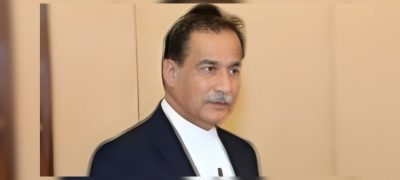Former Chairman of the Securities and Exchange Commission of Pakistan (SECP), Zafar Hijazi, recently sat down for an exclusive interview with Umer Cheema to shed light on his experiences and insights into a range of critical issues, including the Multan Metro project, his legal battles, and the intricacies of the Panama JIT case.
واٹس ایپ پر بننے والی پانامہ جے آئی ٹی اور اسکو بے نقاب کرنے والے سابق چیئرمین سکیورٹی ایکسچینج کمیشن @goneneutral کا پہلا اور انکشافات سے بھر پور انٹرویو #TalkSHOCK کیساتھhttps://t.co/DzfRvxfntD
— Umar Cheema (@UmarCheema1) November 7, 2023
Interview with Zafar Hijazi, Former Chairman of SECP:
Zafar Hijazi is a respected former chairman of the Securities and Exchange Commission of Pakistan, known for his significant role in implementing rules and regulations pertaining to companies in Pakistan. Despite facing harassment and false allegations, he remained silent until the court rendered its decision.
Read more:Startling Revelation by Azaz Syed: ISI Officer’s Election Delay Request in 2018
Integration of Legal Framework and Capital Market in Pakistan:
Hijazi discussed the transformation of the legal framework and the integration of various laws. This involved merging the capital market in Pakistan with Asco in Islamabad. He also highlighted that the Securities and Exchange Commission of Pakistan (SECP) used to command significant respect in the past.
Miscommunication and Pressure in the Commission Meeting:
The interview delved into the challenges of miscommunication and pressure within the commission meeting. A speaker faced a situation where he inadvertently sent something that wasn’t meant to be transmitted, resulting in a misunderstanding with the Attorney General. The tension escalated when the speaker’s son, a chartered accountant, was physically assaulted by certain individuals.
Discussion about the Involvement of Various Individuals in a Case:
Hijazi discussed the involvement of specific individuals in a particular case, emphasizing the importance of effective communication between different agencies and offices concerning the case. He touched upon the selection of individuals and the exchange of information related to the case.
Controversial Proceedings in the Court:
The interview addressed contentious proceedings within the courtroom, including the unusual re-submission of two out of three shirts and the request for a list of 200 officers, of which only 18 were provided. The court eventually ordered the registration of a case against the chairman.
Pressure on the Protagonist, Changing Characters, and the Involvement of the Minister:
Hijazi shared insights into the pressure he felt and his desire to step away from the situation. He also noted the changing characters in the story, such as the introduction of Nisar Ali Chaudhry. Furthermore, he discussed the involvement of a minister and the additional pressure it brought.
The Challenges Faced and Lessons Learned:
The interview explored the challenges Hijazi faced while incarcerated and accused of crimes. He detailed his struggles with health issues and the emotional impact on his family. Hijazi reflected on personal challenges and the importance of self-satisfaction.
Miscommunication and Lack of Accountability:
The G.T. Road incident was attributed to miscommunication and a lack of coordination among authorities. For instance, the police failed to inform Nawaz Sharif about the incident, leading to confusion. Communication breakdowns between the jail superintendent and higher authorities caused delays in addressing the situation.
Discussion on the Case and Personal Experiences:
The interview included discussions on the case, including the dates of hearings, technicalities, and procedures involved. Hijazi expressed gratitude for the support he received and shared his personal experiences.
Discussion on the Multan Metro and Media Trial:
Hijazi talked about his involvement with the Multan Metro project and his experience with media trials. He expressed gratitude and shared his perspective on the situation, detailing the challenges he encountered and the feedback he received.
This comprehensive interview with Zafar Hijazi provided valuable insights into a wide range of topics, from legal intricacies to personal experiences, shedding light on complex issues and the challenges he faced during his tenure.









